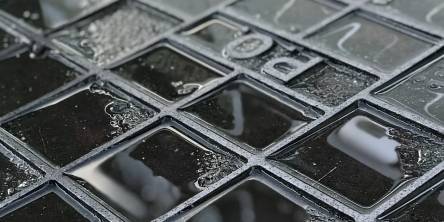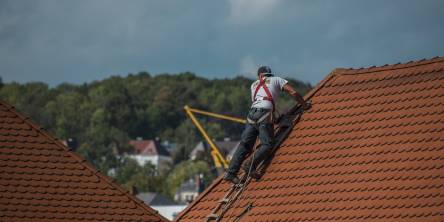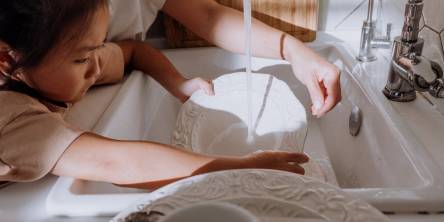A Comprehensive Guide on CPVC Pipes and Fittings

Are you looking for CPVC pipes? If yes, then this article would be highly informative for you! So, why wait? Let's get into it. A CPVC pipe, known as chlorinated polyvinyl chloride pipe, is used for plumbing, water supply lines in businesses and homes and HVAC systems in industrial buildings.
CPVC is generally ideal for commercial and residential use. It can carry wastewater and potable water easily. In addition, they are often used in areas where water corrosion is prevalent since they can cope with varying pH levels and withstand temperatures as high as 93°C, making them ideal for transporting hot water and useful in steam applications.
Features of CPVC Pipes
CPVC pipe and fittings come in various shapes, sizes and colours, including elbows, unions, tees and couplings. In addition, CPVC pipe fittings come in multiple colours and are odourless; thus can be matched with the interior decor of any house.
They are durable, and installation is straightforward as they are made of plastic; thus, they are easy to cut and can be joined using solvent-glue adhesives or solvent-welding. At the same time, PVC pipes have certain limitations, as there is a chance of damage if it comes into contact with sulfuric acid or chlorine, as they can lead to cracks and brittle pipes over time. However, that is not the case for CPVC pipes, as it does not leak chemicals into the water if they come into contact with chlorine or other chemicals, making them ideal for toilets and basements.
It is non-reactive and non-toxic to water and numerous chemicals; thus is highly rated when it comes to uses related to drinking water, steam or extreme water temperatures like usage in heating systems.
CPVC pipe's resistance to corrosion in alkaline or acidic solutions allows it to sustain without rust or cracks for decades. Usual PVC pipes can get damaged due to water's high mineral content. Thus houses with underground hard water use CPVC pipes for better water applications.
Why Should You Purchase CPVC Pipes?
CPVC pipes have multiple benefits. Some of these are as follows:
-
Chemical and Corrosion Resistant
Unlike UPVC pipes and fittings, since CPVC has been treated with chlorine, it prevents the pipe from disintegrating or rotting. The extreme temperature and chemical resistance to acids, solvents or alkalis found commonly in detergents and cleaners make it ideal for homes. CPVC pipes are often used in bathroom plumbing and HVAC systems and are resistant to mildew and mould.
-
Extreme Temperature Resistant
CPVC pipes are fire and smoke resistant as they do not burn even when exposed to heat. Making them ideal for places such as the kitchen and other rooms with a high fire risk. In addition, CPVC pipes do not crack or break since they are heat resistant and can be exposed to high temperatures; thus, they are used in appliances which operate in high temperatures, like the solar heater appliance.
-
Lack of Heat Conductivity and Thermal Expansion
These pipes are resistant to thermal expansion and do not conduct heat, making them an excellent choice for hot and cold water pipes in areas with extreme temperatures. CPVC pipes do not rupture or get damaged with fluctuating temperatures. In the case of wires running through the pipes, CPVC pipes are not good conductors of electricity, making them safer than other types of pipes.
-
Lightweight and Durable
Since the pipes are plastic, they are easier to handle, and installation does not take much time. Their lightweight and flexible features make them easier to use and thus can be easily inserted into holes and bent around corners, making them ideal for small spaces. No additional tools are needed for installing CPVC pipes as they use the same tools as PVC pipes.
-
Long Lifespan and Affordability
As an engineered plastic, CPVC is accessible in the pocket, and its durability can make it last for years, especially in high wear and tear areas. In addition, it is a cost-effective solution for all plumbing needs since it does not need to be replaced very often.
-
Efficient and Smooth Flow
Robust CPVC pipes can handle high water pressure, and as their inner surface is smooth, debris cannot clog the pipes easily, which leads to a smooth, uninterrupted flow of water. It also reduces friction and energy loss, unlike the ridges in PVC pipes.
Where can CPVC Pipes be Used?
CPVC pipes and fittings have excellent quality and benefits, which make them ideal for:
- Residential spaces and property including water heaters, floor heaters, solar heaters and central heating; terrace, concealed and exterior water pipeline and swimming pools.
- Industrial uses include the transportation of high-temperature fluids and corrosive and industrial chemicals.
- Commercial uses include drinking water supply and hot and cold plumbing lines, both indoor and outdoor.
Conclusion
CPVC pipe fittings are the most versatile options available in the market. Due to their longer shelf life, easy installation process and zero maintenance requirements, these pipes and fittings are prevalent among plumbers, contractors and builders.
Similar Articles
A well-maintained yard drainage system is key to preserving the beauty and health of any property. Poor drainage can lead to standing water, soil erosion, and even foundational damage to structures over time.
Keep your seaside home in top shape with these 4 expert tips! Learn about weatherproof materials, smart maintenance, and managing coastal challenges effectively.
Explore the future of roofing! Discover energy-efficient materials, smart systems, and sustainable designs reshaping modern home construction trends.
HVAC stands for heating, ventilation, and air conditioning. These all-in-one systems keep your home comfortable and improve air quality throughout a building. Often used in commercial buildings, HVAC units are increasingly used in residential buildings.
Safeguard your home after storms with timely roof repairs. Detect damage early, choose durable materials, and rely on a pro for lasting protection and peace of mind.
Learn how to balance a clean home and family life with these 6 practical tips to manage clutter, involve kids in chores, and set realistic expectations.
Homeowners are increasingly drawn to farmhouse-style architecture, which creates an inviting atmosphere in their homes that prioritizes comfort and coziness over aesthetics.
Discover transformative home renovation ideas for modern living, with trends, expert tips, and sustainable, budget-friendly practices to elevate your space.
Exterior shutters can make a brick house stand out, adding personality and charm. Homeowners often wonder if installing shutters on brick is a challenge, and it’s a valid concern.









